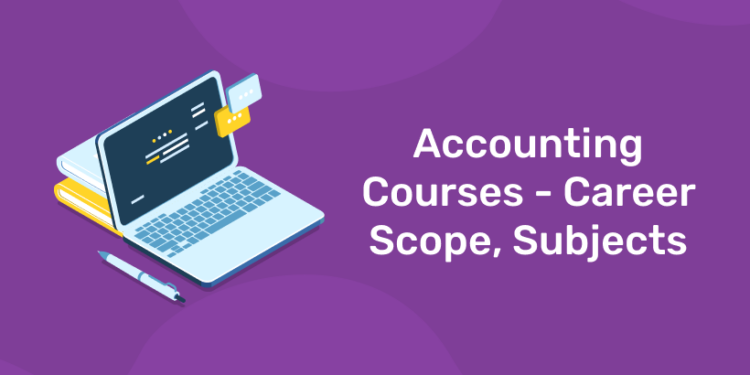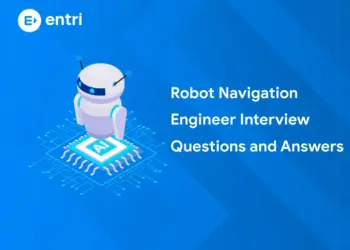Table of Contents
Accounting is one of those fields that has stood the test of time and has been a prominent field in terms of study and career. This blog talks about the career scope of various accounting courses that you can avail, along with the benefits as well as prestigious platforms that offers courses suited to your goals.
Check out this video by Entri in Malayalam!
Introduction: About Accounting
Accounting is the system of recording and summarizing business and financial transactions and analyzing, verifying, and reporting the results. As accounting is the backbone of every business organization so the field of accounting always remains in demand. Accounting is needed in every industry. It is one of the most respected professions and careers in the world. The four types of accounting include Corporate Accounting, Public Accounting, Government Accounting, and Forensic Accounting.
Unlock Your Accounting Potential – Enroll in Our Accounting Course!
Accounting Courses
1: Accounting provides information on
Accounting is a field that has endless job opportunities. It plays a very important role in any business, making it a very crucial part of an organization, for managing payroll, auditing, and financial management
It is critical to stay connected with accounting and finance activities that occur within any firm. The demand for accounting specialists is increasing as the area of accounting expands. To work in the accounting industry, you must have remarkable skills.
Different types of accounting include,
- Financial accounting
- Management accounting
- Auditing
- Tax accounting.
Candidates can choose from a range of accounting courses to pursue a career in this field. Accounting courses are available as a degree, diploma, and certification. Some of the popular accounting courses are outlined below.
Accounting Diplomas
Given below is the list of four popular accounting diplomas.
| Accounting Courses: Diploma | |
| PGDM in Accounting & Finance | Diploma in Accounting & Finance |
| PG Diploma in Accounting | Diploma in Business Accounting |
| Diploma in Accounting Management | Diploma in Transfer Pricing |
| Diploma in Advanced Accounting | Diploma in Accounting Science |
Eligibility Criteria – For admission to undergraduate courses in accounting, the minimum educational qualification is SSLC and PLUSTWO passed with commerce subjects like Accounts, Economics, and Mathematics is required.
Become a Skilled Accountant – Join Our Accredited Accounting Course Now!
Given below is the list of the three top undergraduate accounting degrees.
| Accounting Courses: Degree | |
| B.Com in Accounting & Finance | M.Com in Accounting & Finance |
| B.Com in Accounting & Taxation | M.Com in Accounting & Taxation |
| BBA in Accounting & Finance | MBA in Accounting & Finance |
Eligibility Criteria – Minimum educational qualification of a bachelor’s degree in the relevant discipline is required for admission to master’s courses in accounting.
Accounting Certifications courses
Given below is the list of 10 popular accounting certifications.
|
Accounting Courses: Certification |
||
|
Chartered Financial Analyst (CFA) |
Certified Financial Planner (CFP) |
|
|
Chartered Financial Consultant (CFC) |
Certified Management Accountant (CMA) certification |
Chartered Global Management Accountant (CGMA) |
|
Certified Public Accountant (CPA) |
Financial Modeling and Valuation Analyst (FMVA) |
Chartered Alternative Investment Analyst (CAIA) |
|
Financial Risk Manager (FRM) |
||
Placement Oriented PWC Business Accounting Course
PWC Certified Business Accounting Course by Entri App: Master in-demand skills, ace interviews, and secure top-tier jobs.
Join Now!Accounting Courses by Entri: A Detailed Overview
Entri offers a total of six accounting courses that focus on providing the best education along with top-quality materials for its learners. Entri’s goal of delivering upskilling options for aspirants in their vernacular language has led them to introduce accounting-related courses. With industry experts as mentors and a dedicated placement cell ensuring that you are job-ready and have placement opportunities by the time you complete your course, Entri is the best platform to secure your career in accounting. Let us now go through each of Entri’s courses in detail.
PWC Practical Accounting Course
The AI-Powered Practical Accounting and Finance Certification Programme by Entri is a comprehensive six-month online course designed for both commerce graduates and accounting professionals. It covers foundational and advanced accounting principles, practical projects, and hands-on training by making use of leading software such as TallyPrime, Zoho Books, and Excel. Additionally, the course also offers UAE-specific modules in banking, taxation, and corporate law. The program features expert faculty, live doubt-clearing sessions, placement assistance, soft skills training, and verification, including a PWC-endorsed Tax Practical Programme, making it a suitable job-oriented path for those seeking real-world accounting skills and industry recognition.
PWC Edge Strategic Accounting and Finance Programme
Entri and PWC have come together in collaboration for a strategic accounting and finance programme. It is a four-month online course that is taught in Malayalam and offers dual certifications while focusing on practical skills in accounting, tax compliance, data analytics (Excel, Power BI), and industry software like Tally and Zoho. The course includes live expert sessions, career support, and requires a selective admission process, making it ideal for students, graduates, and professionals aiming for global accounting and finance careers.
Association of Chartered Certified Accountants Course
The ACCA course from Entri is a six-month online course that is designed to prepare students, graduates, and professionals for global finance and accounting careers. Features include live and recorded classes, expert mentorship, AI-powered learning tools, live doubt-clearing sessions, and placement support. The curriculum includes extensive learnings in financial management, taxation, auditing, and reporting, with exemptions available for qualified commerce graduates. With flexible scheduling, up-to-date materials, and networking opportunities make this course an ideal one for those seeking internationally recognised ACCA certification and diverse finance job roles.
SAP FICO Course
The Entri Elevate SAP FICO course is a three-month online program offering practical training in SAP Financial Accounting and Controlling. It includes live and recorded sessions, expert mentorship, hands-on projects, assessments, and placement support. The course is designed for finance students, professionals, and ERP consultants and prepares them for roles such as financial analyst, accountant, and data analyst with a focus on SAP FICO systems and career growth.
SAP MM Course
A three-month online program, the Entri Elevate SAP MM (Material Management) course focuses on SAP’s procurement and inventory management processes with recorded and live classes, mentorship, group discussions, and assessments. The curriculum covers valid areas such as procurement, inventory management, invoice verification, vendor evaluation, contract management, and SAP MM navigation. The course is a suited for students, professionals, and career switchers and equips participants with practical SAP MM skills, preparing them for roles such as procurement specialist, inventory control specialist, supply chain analyst, and SAP MM functional analyst with strong placement support and career advancement opportunities.
SAP SD Course
The Entri Elevate SAP SD (Sales and Distribution) course is a three-month online program focused on SAP’s sales, order processing, delivery, and billing functions. Featuring live and recorded classes, mentorships, assessments, practical training, and placement support, the course is suitable for those who want to gain an extensive understanding of SAP. With a specially designed curriculum that encompasses order management, billing, delivery, SAP SD integration with MM and FICO, and real-world scenarios, teh course can be availed by professionals, students, and career switchers – preparing them for roles such as SAP SD specialist, business analyst, consultant, and project manager, with a strong wmphasis on hands-on experience and industry relevant skills.
Career Scope in Accounting
As we all know, in today’s world, there is a huge demand for the accounting and finance industry. The field of Accounting offers a wide range of career options. It has culminated in being one of the best courses that you can take along and make a good career. There is quite a scope for a student after completing an accounting course. There are various aspects that a student learns during his time in the accounting course, and they can apply the skills to make sure that they make the most of their career.
Numerous options are open for candidates seeking a career in accounting. The job of accountants exists in both the public as well as in private sectors. If you are choosing your career to be an accountant, then the career options in this field are available in numbers. You can go for various jobs under this course.
Every organization needs an accountant who manages and maintains the financial records of the company. It enables the organization to judge its success/failure and plan for the future. There are different positions available in this field. Lucrative jobs are available for chartered accountants in India as well as in foreign countries.
Roles of an Accountant
- The main role is to prepare the financial statement of an organization.
- Maintaining financial records of an organization.
- Accountants advise the ways that reduce costs, increase revenues, and profits.
- Accountants must ensure that all the taxes in the entity are paid on time.
- Securing the financial data by creating backups.
| Accounting courses we offer |
Accounting courses in Different Cities |
| Business Accounting & Finance Certification | |
| Tally Course | |
| Taxation Course | |
| UAE Accounting Course | |
| GST Course |
Skills Required for an Accountant
Accounting is a career of strong calculative and analytical skills. Some skills that are required for an accountant are listed below:
- Communication Skill
- Attention to detail
- Analytic & Interpersonal skills
- Knowledge of accountancy software
- Strong in mathematics
- Understanding of accounting procedures
- Software efficiency
- Critical thinking
- Ability to work in an office setting to review documents for long hours
- Ability to handle distraught and questioning clients
- Ability to work for a longer duration in of computing area
Subjects in Accounting
|
Accounting Subjects
|
||
| Business law | Financial accounting | Corporate finance |
| Auditing | Taxation | Financial markets |
| Management accounting | Microeconomics | Tax accounting |
| Cost accounting | Banking & investment | Regulatory accounting |
Business law
Commercial law or business law is the body of law which governs business and commerce and is often considered to be a branch of civil law and deals both with issues of private law and public law. Commercial law regulates corporate contracts, hiring practices, and the manufacture and sales of consumer goods.
Financial accounting
Financial accounting is a specific branch of accounting involving a process of recording, summarizing, and reporting the myriad of transactions resulting from business operations over a period of time. These transactions are summarized in the preparation of financial statements, including the balance sheet, income statement and cash flow statement, that record the company’s operating performance over a specified period.
Work opportunities for a financial accountant can be found in both the public and private sectors. A financial accountant’s duties may differ from those of a general accountant, who works for himself or herself rather than directly for a company or organization.
Corporate finance
Corporate finance is the subfield of finance that deals with how corporations address funding sources, capital structuring, accounting, and investment decisions. It is often concerned with maximizing shareholder value through long- and short-term financial planning and the implementation of various strategies. Corporate finance activities range from capital investment to tax considerations.
- Corporate finance is concerned with how businesses fund their operations in order to maximize profits and minimize costs.
- It deals with the day-to-day operations of a business’ cash flows as well as with long-term financing goals (e.g., issuing bonds).
- In addition to capital investments, corporate finance is concerned with monitoring cash flows, accounting, preparing financial statements, and taxation.
Auditing
Auditing is a part of the accounting world. It is an examination of accounting and financial records that is undertaken independently. This is done to determine if the company or the business undertaking has confirmed its operations to the laws and the generally accepted accounting principles.
Taxation
- Tax accounting is the sub sector of accounting that deals with the preparations of tax returns and tax payments.
- Tax accounting is used by individuals, businesses, corporations and other entities.
- Tax accounting for an individual focuses on income, qualifying deductions, donations, and any investment gains or losses.
- For a business, tax accounting is more complex, with greater scrutiny regarding how funds are spent and what is or isn’t taxable.
Financial markets
- Financial markets refer broadly to any marketplace where the trading of securities occurs.
- There are many kinds of financial markets, including (but not limited to) forex, money, stock, and bond markets.
- These markets may include assets or securities that are either listed on regulated exchanges or else trade over-the-counter (OTC).
- Financial markets trade in all types of securities and are critical to the smooth operation of a capitalist society.
Explore free courses provided by Enri to build your foundation in accounting!
Managerial accounting
Managerial accounting is the practice of identifying, measuring, analyzing, interpreting, and communicating financial information to managers for the pursuit of an organization’s goals. It varies from financial accounting because the intended purpose of managerial accounting is to assist users internal to the company in making well-informed business decisions.
Microeconomics
Microeconomics is the branch of economics that considers the behaviour of decision takers within the economy, such as individuals, households and firms. The word ‘firm’ is used generically to refer to all types of business.
Tax accounting
Tax accounting is a structure of accounting methods focused on taxes rather than the appearance of public financial statements. It is governed by the Internal Revenue Code, which dictates the specific rules that companies and individuals must follow when preparing their tax returns.
- Tax accounting is the sub sector of accounting that deals with the preparations of tax returns and tax payments.
- Tax accounting is used by individuals, businesses, corporations and other entities.
- Tax accounting for an individual focuses on income, qualifying deductions, donations, and any investment gains or losses.
Cost accounting
Cost accounting is a form of managerial accounting that aims to capture a company’s total cost of production by assessing the variable costs of each step of production as well as fixed costs, such as a lease expense.
- Cost accounting is used internally by management in order to make fully informed business decisions.
- Unlike financial accounting, which provides information to external financial statement users, cost accounting is not required to adhere to set standards and can be flexible to meet the needs of management.
- Cost accounting considers all input costs associated with production, including both variable and fixed costs.
- Types of cost accounting include standard costing, activity-based costing, lean accounting, and marginal costing.
Banking & investment
Bank accounting includes the preparation of permanent records for every transaction. Therefore, the statement of the bank shows a general picture of the accounts of the bank, while the different books of accounts offer a detailed analysis of the items.
Regulatory accounting
While regulation helps to ensure the quality of services that professional accountants provide, ultimately, it is the ability of the profession to put the public interest first that will earn the profession the respect of communities and regulators around the world. This Policy Position has been prepared by IFAC.
Placement Oriented PWC Business Accounting Course
PWC Certified Business Accounting Course by Entri App: Master in-demand skills, ace interviews, and secure top-tier jobs.
Join Now!Conclusion
In conclusion, a career in accounting remains both stable and rewarding, offering strong prospects across diverse industries. Starting as an entry-level associate allows you to build essential on-the-job experience with the flexibility to specialise in a sector that aligns with your interests. As you progress, opportunities to advance your career will start to form, including launching your firm and continually enhancing your expertise with emerging technologies.
While accounting provides many benefits, it is important to be wary of the challenges, such as occasional workplace monotony, especially at the end of the financial year. Ultimately, those who equip themselves with the up-to-date skills through courses such as the ones provided by ENtrui will emerge with ample opportunities for thriving in this ever-evolving field. So, enroll now and secure your future with Entri!
Become an Accounting Pro – Learn from Industry Experts!
Placement Oriented PWC Business Accounting Course
PWC Certified Business Accounting Course by Entri App: Master in-demand skills, ace interviews, and secure top-tier jobs.
Join Now!Frequently Asked Questions
What are the main types of accounting courses available?
Accounting courses are offered in several formats like diplomas, undergraduate and postgraduate degrees (such as B.Com, M.Com, MBA), as well as professional certifications (such as ACCA, CMA, CPA, and specialized SAP modules). The right course depends on your current qualification, career goals, and preferred sector of work.
What are the prerequisites for enrolling in accounting courses?
Diploma and undergraduate courses typically require a background in commerce at the 10+2 level with subjects like Accounts, Economics, or Mathematics. For postgraduate accounting degrees, a bachelor’s degree in a related field is necessary. Certification courses may have their own requirements, but many can be taken by students, graduates, or working professionals seeking upskilling opportunities.
What skills do I need to succeed in an accounting course and as an accountant?
Success in accounting requires strong analytical, numerical, and communication skills, proficiency in accounting software (like Tally, SAP, Excel), attention to detail, organizational skills, the ability to handle deadlines, and a solid grasp of accounting standards.
Why should I choose accounting as a career?
Accounting is a respected and stable profession with consistently high demand across all industries. It offers diverse specialization options (corporate, public, government, forensic), opportunities for career advancement, and the flexibility to work in sectors of your choice. The rapid evolution of business practices also ensures ongoing relevance and employability in the field.
What career paths are open to me after completing an accounting course?
Graduates can pursue roles such as accountant, financial analyst, auditor, tax consultant, management accountant, business analyst, SAP consultant, or even advance to senior management positions (like CFO or partner). Professional certifications open additional opportunities both in India and internationally.
Can I switch to accounting from a non-commerce background?
Some foundational courses, diplomas, and certifications are open to non-commerce graduates, but a basic understanding of mathematics and business concepts is helpful. Certain advanced degrees may require a commerce background for admission.
What software skills are essential for accounting professionals?
Familiarity with widely used accounting software such as Tally, Zoho Books, SAP FICO/MM/SD, Microsoft Excel, and Power BI is increasingly important for both course success and employability. Many contemporary accounting courses include practical software training modules.
What is the duration of popular accounting courses?
-
Diplomas can range from 6 months to 1 year
-
Undergraduate degrees typically take 3 years
-
Professional certifications vary: ACCA (6-24 months depending on exemptions), SAP modules (3 months)
-
Short-term certificates can range from a few weeks to several months
What is the job outlook for accounting graduates in 2026 and beyond?
The job outlook is strong due to the essential role of accountants in every business, increasing regulatory requirements, and the globalization of finance. Skilled accountants are in demand across corporate, public, and nonprofit sectors, with evolving roles thanks to technology and data analytics.
Do accounting courses offer placement assistance?
Many reputable platforms and institutes, including Entri, provide dedicated placement support, mentorship, and career guidance to help learners secure jobs upon course completion.
These FAQs address the most common queries prospective students have about pursuing accounting as a field of study and career, making it easier to plan your educational and professional pathway in accounting.
















